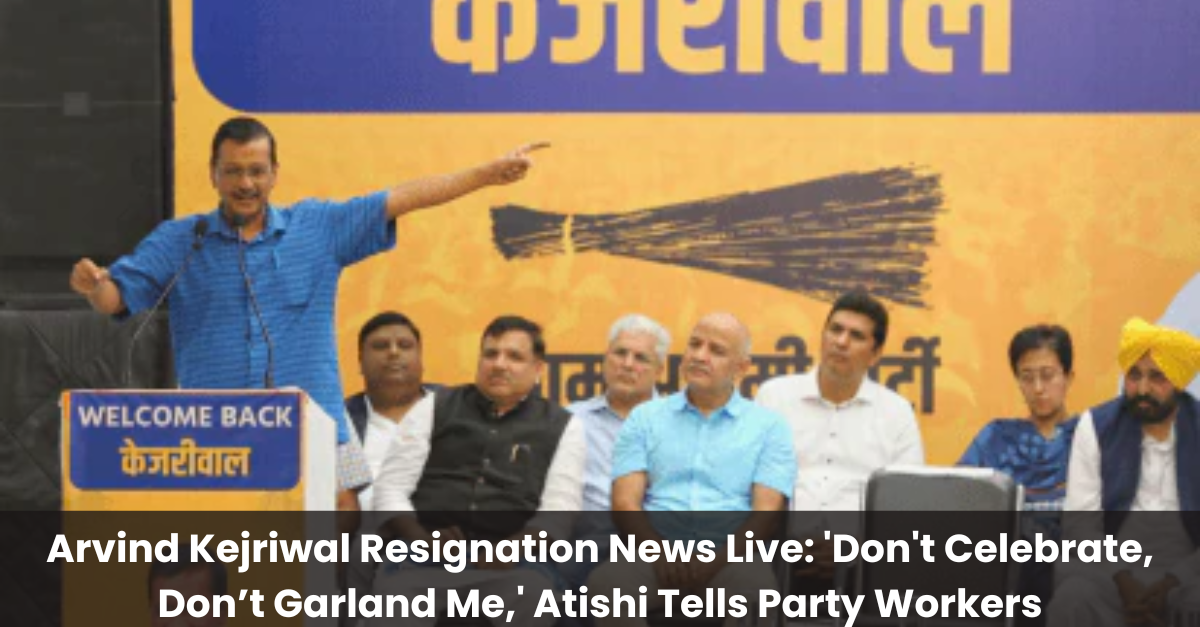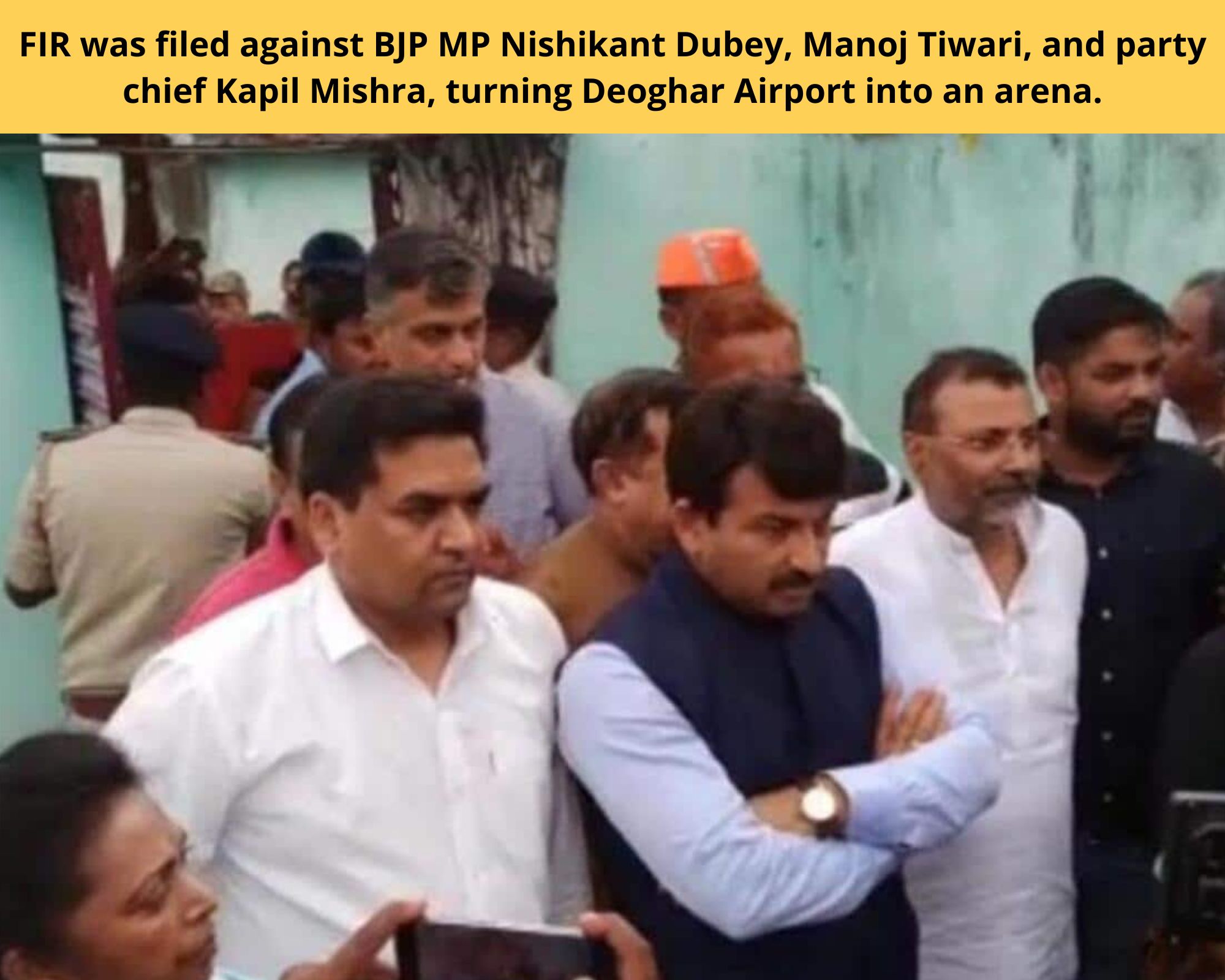In a recent turn of events in Indian politics, Delhi Chief Minister Arvind Kejriwal has announced his resignation, leaving many to speculate about the future of the Aam Aadmi Party (AAP) and the political landscape of Delhi. The resignation has stirred a wave of reactions from party members, political analysts, and the general public. In a noteworthy response to the unfolding situation, Atishi Marlena, a prominent AAP leader, has urged her party workers to refrain from celebrating or showing undue enthusiasm over the resignation.
Context of the Resignation
Arvind Kejriwal’s resignation marks a significant moment in Delhi’s political scene. Known for his anti-corruption stance and efforts to improve the educational and health sectors in Delhi, Kejriwal’s tenure as Chief Minister has been marked by both achievements and controversies. His resignation comes at a time when the city is facing numerous challenges, including economic pressures, infrastructural demands, and political opposition.
The decision to resign was not entirely unexpected, given the political climate and recent challenges faced by Kejriwal. The Chief Minister had been under increasing pressure from various fronts, including allegations of administrative inefficiencies and confrontations with the central government. Despite these challenges, Kejriwal’s leadership has been credited with significant reforms in Delhi, particularly in the areas of education and healthcare.
Atishi Marlena’s Appeal
Atishi Marlena, a key figure in the AAP and a trusted lieutenant of Kejriwal, has made a poignant appeal to party workers in light of the resignation news. Her statement, “Don’t celebrate, don’t garland me,” reflects a deep sense of responsibility and a call for measured responses in this period of transition.
Atishi’s message underscores a few critical points:
- Focus on Continuity and Stability: Atishi is emphasizing the need for stability and continuity in the party’s operations and governance. The resignation of a prominent leader like Kejriwal could create a vacuum that may lead to instability if not managed properly. By asking party workers to refrain from celebrating, Atishi is reinforcing the importance of focusing on the work that lies ahead and ensuring that the party remains united and effective during this transitional phase.
- Respect for Leadership: Atishi’s appeal also reflects respect for Kejriwal’s contributions and leadership. While the resignation might be seen by some as an opportunity for a new beginning or a chance to celebrate political shifts, Atishi is urging a tone of respect and reflection rather than jubilation. This approach highlights the importance of acknowledging the efforts and sacrifices of leaders, even when their departure may be a result of political pressures or personal decisions.
- Party Unity: By asking party workers not to celebrate, Atishi is also signaling the need for unity within the party. Political resignations often lead to factionalism and internal strife. Atishi’s request is a strategic move to prevent any such divisions and to maintain a cohesive front as the party navigates the challenges ahead.
The Broader Implications
Kejriwal’s resignation has broader implications for Delhi’s political landscape and the future of the AAP. As one of the key architects of the party’s rise to prominence, Kejriwal’s departure raises questions about who will step into his shoes and how the party will realign its strategies moving forward.
- Impact on Governance: Kejriwal’s resignation could impact ongoing governance projects and initiatives. The party will need to ensure that there is no disruption in the delivery of services and policies that are critical to the residents of Delhi. The challenge will be to maintain momentum on existing programs while also addressing any leadership changes or shifts in policy direction.
- Political Strategy: The AAP will need to recalibrate its political strategy in light of Kejriwal’s resignation. This includes planning for upcoming elections, managing alliances, and addressing public concerns. The party’s ability to navigate these challenges will be crucial in determining its future political relevance and success.
- Public Perception: The public’s perception of the resignation and the party’s response to it will play a significant role in shaping future political dynamics. How the party handles the transition, communicates with the electorate, and addresses key issues will influence public opinion and electoral outcomes.
Conclusion
Arvind Kejriwal’s resignation is a landmark event in Delhi’s political sphere, and the response from AAP leaders like Atishi Marlena highlights the gravity of the situation. Her call for restraint and focus underscores the need for stability and respect during this period of change. As the AAP moves forward, it will face the dual challenge of managing internal dynamics and addressing external political pressures. The coming days will be crucial in shaping the future of the party and its role in Delhi’s governance.











